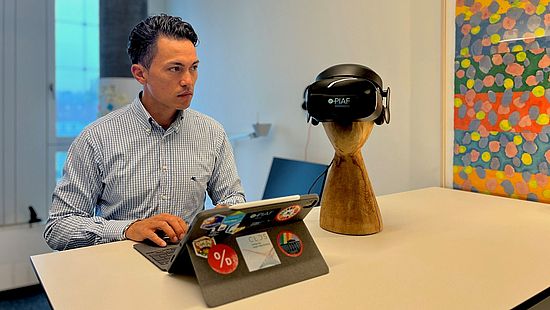
Research portraitApollo Dauag
After completing his studies and passing the bar exam, Apollo Dauag worked as a lawyer in Basel for many years. He wrote his dissertation on civil procedural law part-time for professionals. Three circumstances ensured that he returned to the University of Basel in 2021: The faculty expanded its research focus in the areas of digitalization and life sciences and filled these with new professorships. These professorships initiated new externally funded research projects and also recruited academic co-workers - including Apollo Dauag. This and the creation of the Faculty Research Centre for Digitalization in Government and Administration e-PIAF finally prompted him to continue his research activities - now in the form of a habilitation project - at the Faculty of Law in Basel.
In order to answer these questions, it identifies the various instruments of participation that are provided for in the legislative process and assigns them to the respective "stages of the legislative process". On the other hand, current federal legislative procedures in the field of digitization are analyzed to determine in which phases academic participation took place and what effects this had. The digital legislation of the EU and Switzerland's neighboring countries will also be consulted in order to identify possible alternatives. The analysis of the current situation and the evaluation of a target situation with regard to the involvement of academics in legislation shows where action is needed.
Background
Digitalization is spreading rapidly, across borders and across industries. In the case of new developments in the digital field, the circle of those affected cannot always be clearly defined from the outset. The demands on legislation are therefore high and an interdisciplinary understanding and foresight are required. The seemingly vague "nature" of digitalization poses a challenge:
It is not just about performing the same tasks, now electronically. Rather, digitalization is expected to have far-reaching effects on society, economics and the state's public authorities.
Apollo Dauag
In order to take all of this into account, legislation in the digital sector must take place in an interdisciplinary exchange.
Impact
Apollo Dauag's research aims to contribute to sustainable digital legislation. Evidence of a lack of interdisciplinarity in this area can be found both in the gaps in current research and in legislative practice to date. His habilitation project aims to address both of these points. Designed as a collective habilitation, his work is oriented towards rapid digital change. Emerging questions are to be answered promptly and "feedback processes" - i.e. the resonance from research and practice - are to be used for further investigation.
